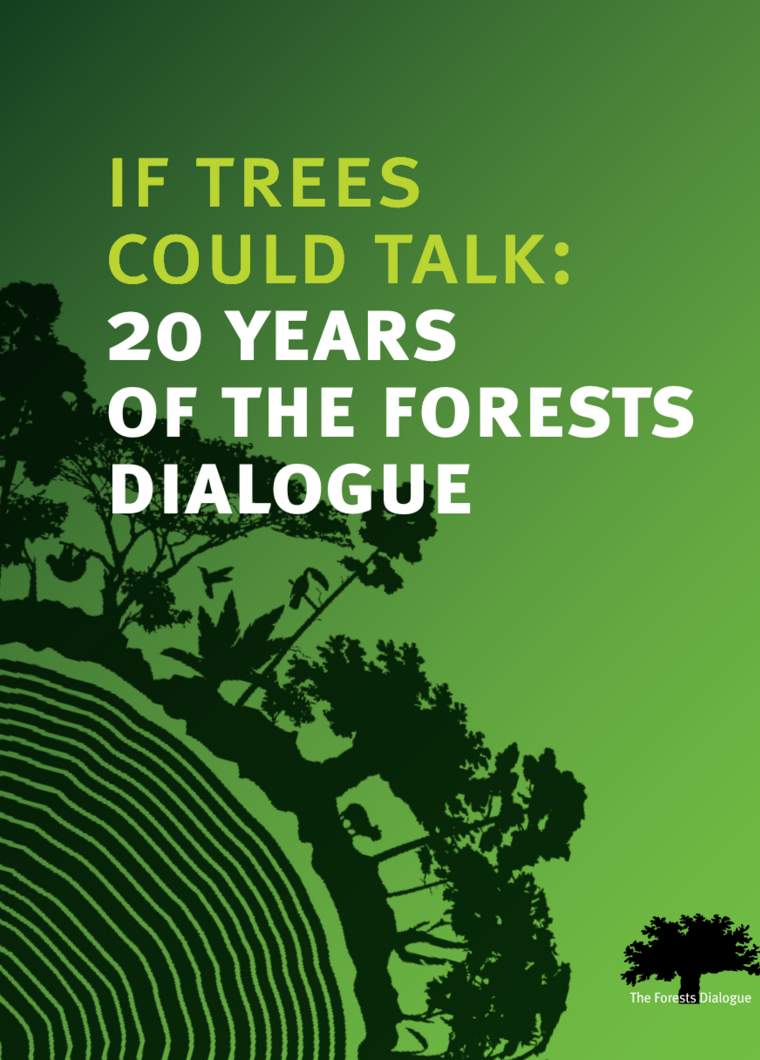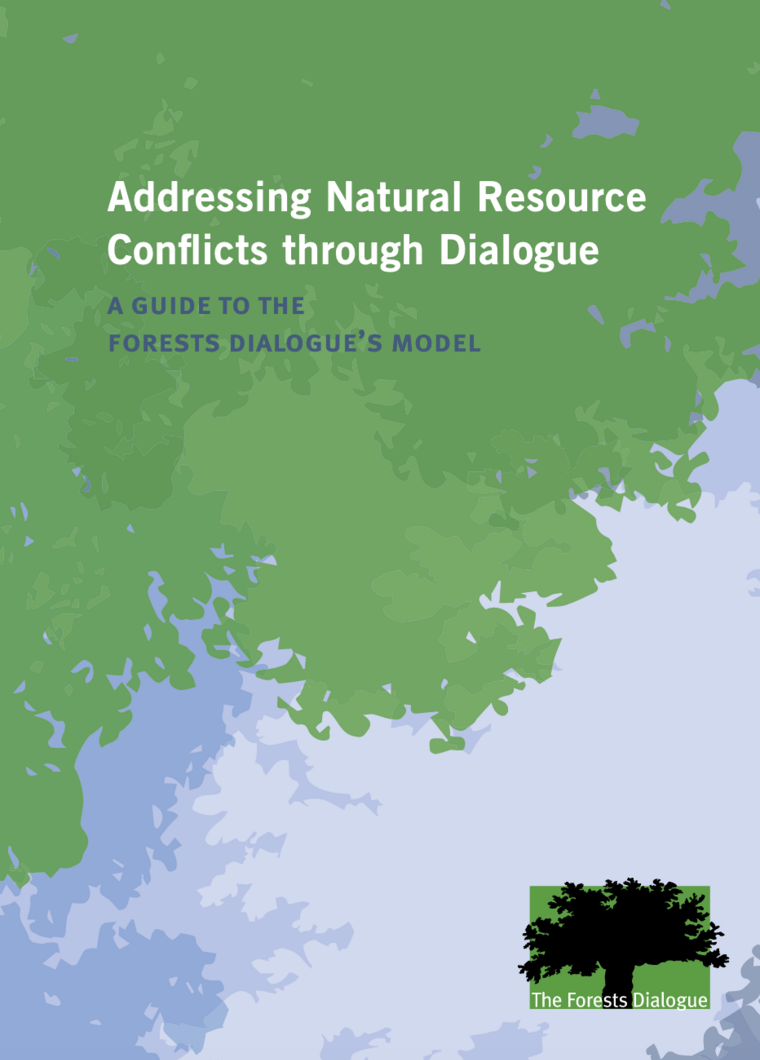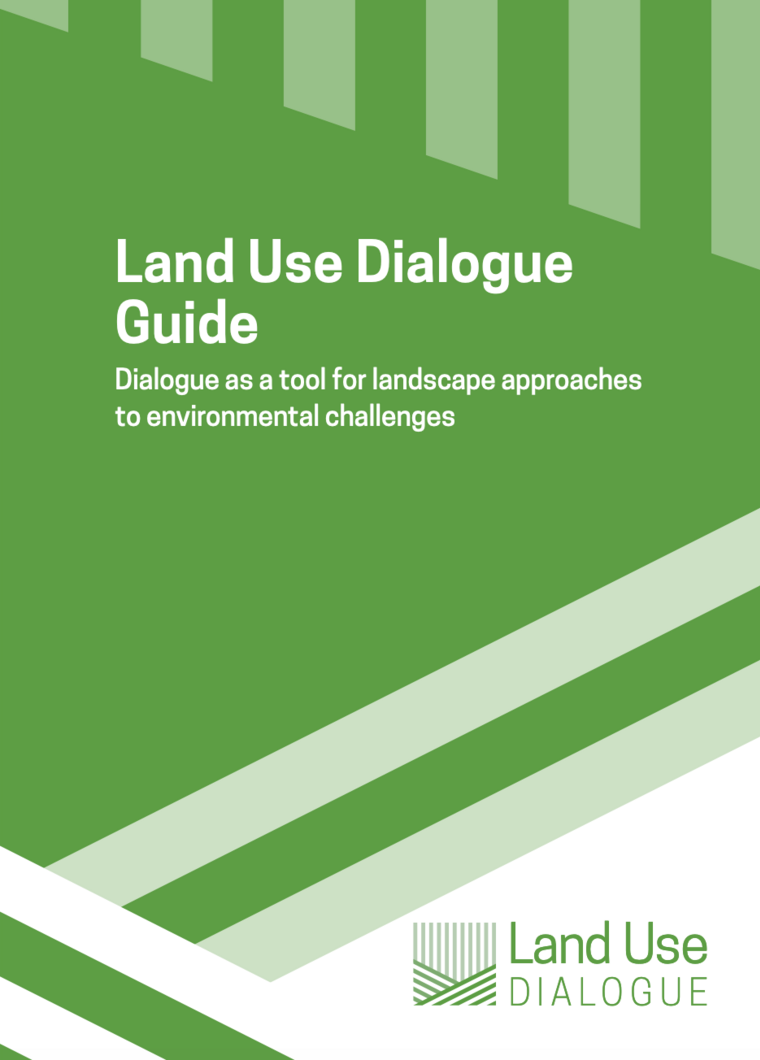Publications
The Forests Dialogue produces and publishes a variety of documents - maintained in a comprehensive library below. The majority of TFD publications are developed through TFD’s initiative process, including the following major publication types. In the lead-up to an initiative, a foundational Scoping Paper is produced to provide context for the scoping dialogue. Background Reports that provide stakeholders with relevant location-specific content are created for each subsequent dialogue following the scoping dialogue. At the conclusion of a dialogue, the co-chairs, with help from the TFD secretariat, produce a Co-chairs’ Summary Report that captures the key perspectives, discussions, agreements, and next steps from the dialogue. At the conclusion of an initiative, the Advisory Group, co-chairs, select leaders, and the Secretariat synthesize the initiative’s conclusions into a TFD Review. Additionally, Country Reports that aggregate learnings from a number of country-specific dialogues are typically produced for initiatives that involve numerous country-level dialogues, including TFD’s REDD+ dialogues. TFD also facilitates the production of guides and policy recommendations including a guide to the TFD process, the Land Use Dialogue methodology. These are geared towards practitioners or policy makers and contain actionable steps that stakeholders can take to enact change based on learnings gathered through the TFD process.
Navigate TFD’s extensive publication database using the search function below, or visit specific dialogue or initiative pages to see their associated publications.
The Forests Dialogue (TFD) convened a scoping dialogue on REDD+ Benefit Sharing hosted by the World Bank on 23-24 March 2013. The dialogue engaged 40 experts (Annex 1) representing a wide spectrum of stakeholder groups including government, non-governmental organizations, Indigenous Peoples, community members, inter-governmental organizations and research institutes.
In partnership with the International Union for Conservation of Nature (IUCN), The Forests Dialogue (TFD) has been organizing a series of international dialogues under its initiative on REDD+ benefit sharing.
Over the last 3 years, The Forests Dialogue (TFD), partnering with the Growing Forest Partnerships initiative, organized a series of country-level dialogues on the promise of—and challenges to—locally controlled forestry (LCF). The effort engaged over 400 forest owners, investors, NGOs, governments and intergovernmental agencies from over 60 countries.
Building on the wealth of information produced by various entities on Benefit Sharing to date, this paper will provide an overview of 1) the current international context on Benefit Sharing 2) main challenges in development and implementation of Benefit Sharing at country and project levels 3) some suggested ways forward.
Over the next 30-40 years, food, fibre, and fuel production will compete even more intensively for limited land and water resources. Maintaining natural forests requires forestry and farming practices that produce more with less land, water and pollution, and new consumption patterns that meet the needs of the poor while eliminating waste and over-consumption by the affluent.
On 11 September, The Forests Dialogue (TFD) teamed up with IUCN to lead a timely “mini-dialogue” on the current challenges related to REDD+ benefit sharing. This dialogue was designed to serve as a platform for sharing current thinking around benefit sharing and for brainstorming possibilities for future collaboration among participants.
One of the biggest challenges of the 21st Century is how to meet the needs of a growing human population and growing development pressures with the resources of a single planet. Key projections from influential models and reports forecast:
• 0.9 billion people are currently under-‐nourished
• Global population will surpass 9 billion by 2050;
Decades of research and overwhelming evidence underline the important roles women play in forest use, management and protection. But, in many parts of the world, women are still largely excluded from the forest sector at local, professional, institutional and policy levels, especially in relation to forest governance, benefit sharing, and policymaking.
Despite decades of research and the existence of overwhelming evidence of the important role women play in forest use, management and protection, women are largely excluded from the forestry sector on a number of levels. This paper examines this exclusion and its probable causes, at the local, professional, institutional and policy levels.
The Forests Dialogue (TFD) and Forest Peoples Programme (FPP) with the Ministry for the Environment, Nature Conservation and Tourism (MECNT), the National REDD Coordination (CN-REDD) and “le Cercle pour la Defense de ’Environnement (CEDEN)” held a five day field dialogue on Free, Prior and Informed Consent (FPIC) in Bas Congo and Kinshasa in the Democratic Republic of the Congo (DRC).




